Paul Jones has been in the music business for over sixty years. and people of a certain age will know him best as the singer with Manfred Mann, responsible for such hits as ‘Pretty Flamingo’ and ‘5-4-3-2-1’. Those a generation younger will know him as The Blues Guy, who hosted Radio 2’s ‘The Blues Show’ for thirty years. He was one of the faces of the mid-1960s but one who avoided the pitfalls of drink and drugs, which is maybe why he still looks like a teenager! We asked him about his relationship with Brian Jones and why he turned down the invitation to join Brian’s new blues band in 1962 We also asked about his skincare regime. PB: If we could begin with your new compilation album, ‘The Blues’, what inspired you to produce that record now? What made you put that album out now rather than ten years ago? PAUL JONES: Well, ten years ago I would have been too busy, but I’ll tell you what enabled me to do it…Coronavirus, because by removing any possibility of doing gigs or anything like that it gave me a load of time off which I otherwise might have wasted, and I thought, “Why don’t I do something constructive like make a compilation of all the blues songs I have ever written?” and actually this is only about half of them. Having done it, I thought, “This could come out and I don’t see why not,”’ so I took the idea to Steve Fearney of Umbrella Music Limited. That is the label which puts out old Manfred Mann material and by people who were in Manfred Mann, and he said, “it sounds like a good idea to me. So, let’s get on with it”. It’s taken a while but finally it’s coming out. PB: I don’t know what you’ve done to it but the recording quality sounds like it has been recorded very recently, with up-to-date recording techniques. PJ: It is actually mainly recordings from 1963 until 2009... I think there’s one that slightly more recent than that, like 2015. Anyway. that’s quite a spread. PB: It is. PJ: The guy who did the remastering, which had to be done because otherwise there would have been huge ranges of sound quality and quantity from one track to another, has done a very, very good job. PB: I love ‘Sonny Boy Williamson’. Who is playing double bass on that? PJ: That’s Jack Bruce. PB: What a legend! When was that one recorded originally? PJ: That has to have been ’66 because Sonny Boy died in ’65 and at that point I was a member of Manfred Mann, but I thought I needed to do this song because I did admire him enormously and learnt a lot from him. Jack Bruce was also in Manfred Man at that time. PB: How long was Jack Bruce there for? PJ: Let’s see now. Mike Vickers, who was a saxophone player who also played a bit of guitar, left in October ’65, so that was when Tom McGuiness, who had been our bass player, asked if it would it be alright if he went back to his original instrument which was guitar, and we got a bass player instead of getting another guitarist, so we got Jack Bruce. Jack must have joined us in October 1965 and he left on the same day as I did in 1966. He was there for about ten months. My ‘Sonny Boy Williamson’ is an obituary really or a eulogy, and I based it on probably my favourite Sonny Boy record that was called “Mighty Long Time”, which was just Sonny Boy and a bass. Anyway, I thought I’m going to need a real bass man, and as Jack and I were still fairly close at that time I rang him up and I said, “Can you do this?” We had to run through a few hoops negotiating with Robert Stigwood. but we got through it in the end and, of course. it has a writing credit as Jones and Bruce. PB: In listening to the CD as a whole, would I be right in saying there is quite a bit of Bo Diddley influence in there with some James Brown chucked in? PJ : Yeah, you’ve got to take it as definitely influenced by James Brown. I think that also came from probably about 1963 or it may have been ’64 but one of my favourite albums at that time was ‘James Brown Live at the Apollo’, which was recorded in Harlem, New York and boy, the energy on that record is thrilling (Laughs). We didn’t really have Soul music until Sam Cooke and James Brown. What they did was a sort of offshoot of Rhythm and Blues. They invented Soul music. ‘You’ve Got to Take It’ was very much influenced by that album ,and as for Bo Diddley I was a massive fan of Bo Diddley. PB: What about ‘5-4-3-2-1’? PJ : We would never have done ‘5-4-3-2-1’ like that, but it was commissioned by the pop TV show ‘Ready Steady Go’. People think that it was a record of ours that they chose to use as a signature tune but actually they asked us to write them a signature tune, so it was written for the show and then we thought, “Hey, this could work as a single.” PB: Was that your first hit? PJ: It was a first but it was about the third record that we put out. The first two bombed! PB: Now Paul, I must ask you this next question and I know you’ve answered it a million times before I’ve still got to ask …. You were a mate of Brian Jones who, as legend would have it, asked you to sing in his new blues band in about 1962, but you turned him down. What’s the story behind that? PJ: Brian and I were quite good friends at that time. I remember when Alexis Korner’s club opened in Ealing which became the most important hub of Blues music, more or less, in the metropolis. Brian said to me, “I don’t know if you know this, mate, but Alexis Korner is opening a club in Ealing on Saturday nights. and the first one is this coming Saturday and I’m going. Do you want to come?” So we went, and I discovered that my own band, Thunder Odin’s Big Secret, was not the only Blues band in Britain at the time. Not only did I find that Alexis Korner had started up a major Blues club, having mostly done sort of acoustic and skittle before, but I also on that first Saturday sometime in March ’62 I met people from bands all over the country! I met a bloke who said he played in a group called The Animals in Newcastle [Laughs] and then I met Spencer Davis. So, all of a sudden I realised here was something going on. Brian and I were pretty close and shared records or loaned each other records, and some time after Alexis opened up that club Brian and I got together with a pianist and a drummer and we made a cassette, as you did in those days. We sent it to Alexis in the hope that Alexis would let us be the support band for him at some time, and, bearing in mind Alexis has a very richly deserved reputation for encouraging young hopefuls like Brian and me, the fact that we never heard back from him was indicative of what that tape was like (Laughs). Many years later Ian Stewart, the sixth Stone, told me that he had heard that tape and I said, “Oh dear, what was it like?’ and he said, “It was a bit grim actually” [Laughs]. Sometime after that, Brian said to me, “You and I have not been taking this thing seriously. I am going to move to London, and I’m going to form a band and I’m going to become rich and famous. Do you want to be my singer?” And I said no” for two reasons, firstly because I thought Brian was being ludicrously optimistic to think that he was going to become rich and famous from playing the Blues. I mean a lot of people hadn’t become rich and famous in America from playing the Blues and certainly no one in England had. Most of Alexis Korner’s band were playing in one or two other bands as well and half of them had a day job. The other reason that I didn’t was because I had actually just successfully passed an audition with a band who played at dances in ballrooms and things and, yes, it wasn’t the height of my ambition but it was paying money and I knew that Brian, at that point, was not in a position to pay money. So, I said, “Good luck with it, Brian, but it’s not me.” People ask me if I regret not being in The Rolling Stones, and I point out that I wasn’t asked to be The Rolling Stones. I was asked to be in a band Brian was forming, and if I had joined it then it wouldn’t have become The Rolling Stones. PB: Exactly. Alexis Korner crops up in a lot of my interviews. Everyone has been through that club at some point which is very interesting. PJ: Yes, it was very significant. He was the Daddy of British Blues. Later on we found out how much Chris Barber had had to do with the Blues, even before Alexis but at the time we didn’t really understand that or know much about it. Now we know, of course, Chris Barber was crucial in encouraging the Blues in Britain and after all Alexis was an employee, a band member of Chris Barber’s outfit after Lonnie Donegan , but I still think of Alexis as the Daddy of British Blues and we have to call Chris Barber the Grandad. PB: The 1960s were famous for sex, drugs and rock and roll. How did you survive? How come you’re still alive today and don’t look a day over twenty? PJ: Well, that’s not true (Laughs). You clearly are not looking very hard! I never wanted to have anything to do with that. As a very serious jazz fan, I used to go to places in London like The Flamingo and The Marquee. both of which were originally jazz clubs. I would hear the great British jazz men, and knowing what some of their lives were like, and indeed the lives of many people from Charlie Parker to goodness knows who, I never wanted anything whatever to do with drugs. I had seen what drugs did to those guys. As for drinking (Laughs], I tried it when I was in the sixth form as school and I was useless at it! PB: When I was researching for this interview, I saw quite a few old black and white interviews with you from the mid 1960s and you always got have the same permanent grin on your face during those interviews. A very cheeky and naughty grin. PJ: I did (Laughs). I used to get beaten up at school for that grin. “What’s so funny?” I’d say, “Nothing! Nothing. I'm just grinning. It got me into alot of bother. PB: There was one interview with the Manfred Mann guys, and they asked Manfred Mann a question about you and he described you as a “big headed loud mouth who hogs the camera.” Surely, that can’t have been true. You laughed at it at the time on the interview. PJ: I don’t know (Laughs). There might have been a period of time when I fitted that description more than now, but, however, I honestly want to say that I don’t recognise myself from that description. As for hogging the camera, when I look at old videos now of us doing ‘Do Wah Diddy’ or whatever it might be, I’m kind of amazed at how little camera time I get. I would be singing away and there would be Manfred at the back mouthing the lyrics. He wasn’t singing but he was mouthing the lyrics and so the camera was on him, so who is doing the hogging? I don’t say that with any sort of resentment. Manfred is entitled to his opinion. He may have been right then and now we are friends again, so all is well. PB: That’s good. Moving slightly away from the word of music, you appeared in two of the greatest TV shows ever recorded for British TV – ‘The Protectors’ and ‘The Sweeney’. How did you get into those two programmes? PJ: I had an agent. I got into acting because of a man called Charles Marowitz who was a sort of enfant terrible of French theatre in London in 1968. I started to do acting because of him, and that led on to me being in a play called ‘Conduct Unbecoming’ which opened in Bristol, transferred to London and then went to New York which resulted in my living for the best part of a year in New York, before I came back to London. I had an agent already but he was a music agent. So. we decided that I needed a theatre or an acting agent as well. So, I took on Charles and he fixed me up with , what I call, “guest villain jobs2 [Laughs] on those shows. I remember I was aggrieved and seriously miscast in ‘The Sweeney’ because I was a boxer. PB: With a big woolly mask on if I remember rightly. PJ: Oh, yeah, I definitely had to have that, the balaclava job. If anybody looked at my hands and my wrists, they would know that I wasn’t a boxer [Laughs]. PB: I’m sure nobody would be looking at that. To conclude, Paul, a question from my wife – what do you use on his face to look so young? You must use some special creams or have facials? PJ: I always use a Vitamin E cream from The Body Shop. PB: Is that all it is? I don’t believe that. PJ: But also my wife and I eat healthy food which we love and that makes a big difference, and the other thing is I gave up smoking thirty-eight years ago. and I never really did drink that much but I gave that up as well. I never actually gave up drinking, I just haven’t had a drink for thirty year [Laughs]. PB: Thank you.
Band Links:-
https://www.facebook.com/PaulJonesHarmonica/https://en.wikipedia.org/wiki/Paul_Jones_(singer)
https://www.themanfreds.com/Pauljones.html
Play in YouTube:-
Picture Gallery:-
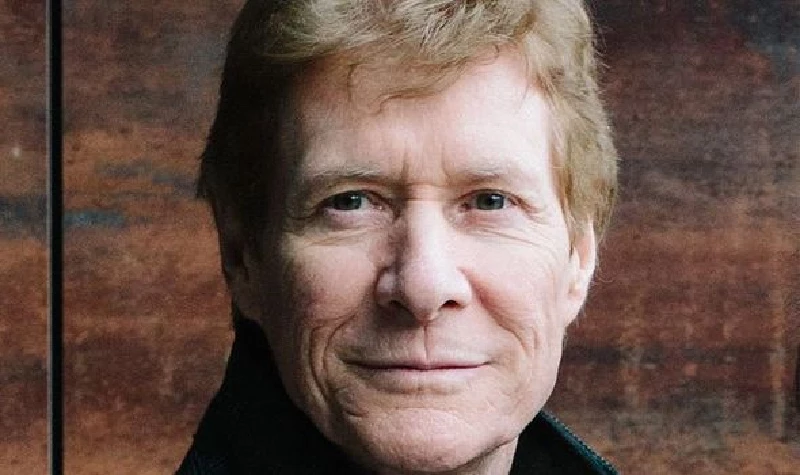
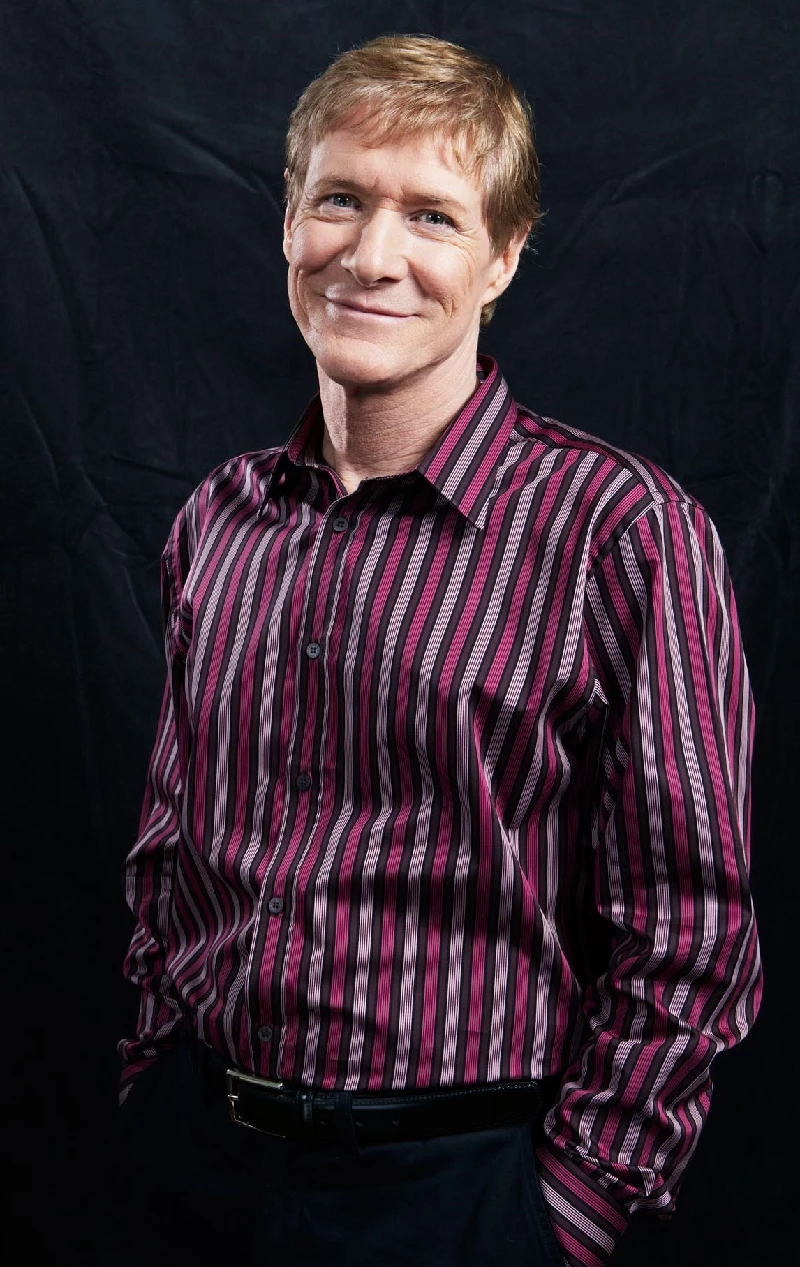
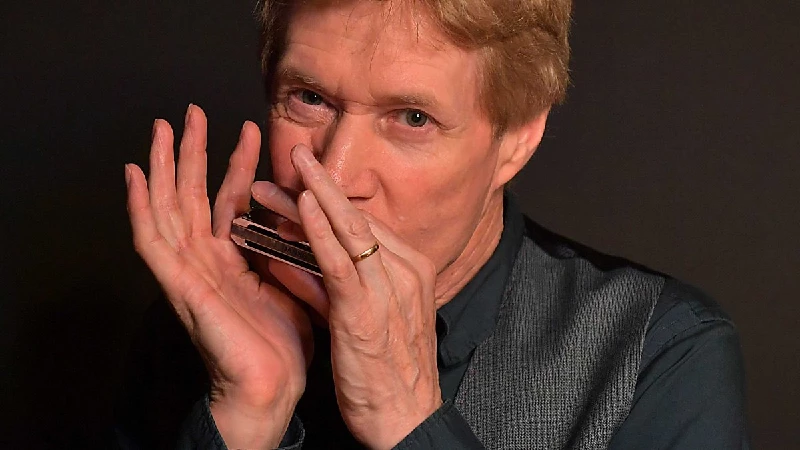
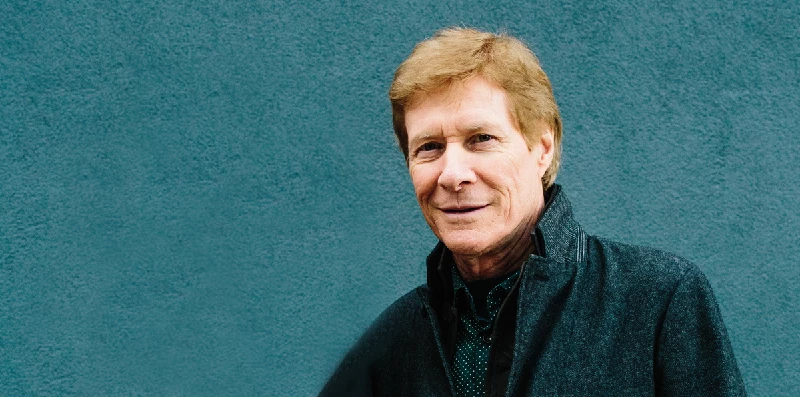
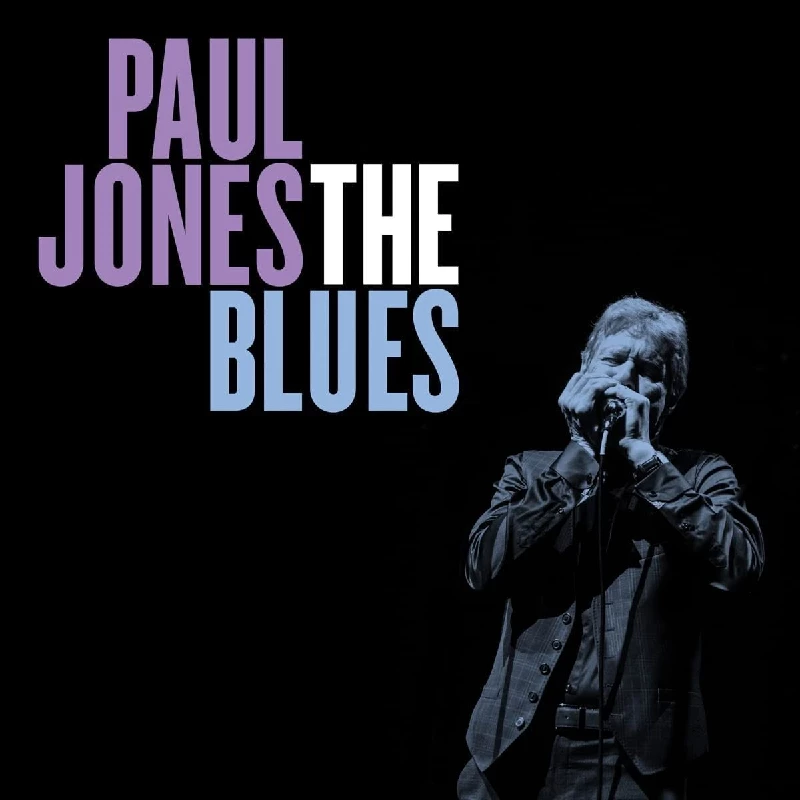
intro
Andrew Twambley talks to ex-Manfred Mann frontman and Radio 2 DJ Paul Jones about his new compilation record 'The Blues Album' and his friendship with Brian Jones.
most viewed articles
current edition
Peter Doherty - Blackheath Halls, Blackheath and Palace Halls, Watford, 18/3/2025 and 21/3/2025Armory Show - Interview with Richard Jobson
Liz Mitchell - Interview
Lauren Mayberry - Photoscapes
Deb Googe and Cara Tivey - Interview
Max Bianco and the BlueHearts - Troubadour, London, 29/3/2025
Garfunkel and Garfunkel Jr. - Interview
Sukie Smith - Interview
Clive Langer - Interview
Maarten Schiethart - Vinyl Stories
previous editions
Heavenly - P.U.N.K. Girl EPBoomtown Rats - Ten Songs That Made Me Love....
Trudie Myerscough-Harris - Interview
Doris Brendel - Interview
Beautiful South - Ten Songs That Made Me Love...
Dwina Gibb - Interview
Pulp - Ten Songs That Made Me Love...
Kay Russell - Interview with Kay Russell
Oasis - Oasis, Earl's Court, London, 1995
Sound - Interview with Bi Marshall Part 1
most viewed reviews
current edition
Davey Woodward - Mumbo in the JumboNigel Stonier - Wolf Notes
Wings - Venus and Mars
Kate Daisy Grant and Nick Pynn - Songs For The Trees
Only Child - Holy Ghosts
Neil Campbell - The Turnaround
Philip Jeays - Victoria
Darkness - Dreams On Toast
Suzanne Vega - Flying With Angels
Charles Ellsworth - Cosmic Cannon Fodder
Pennyblackmusic Regular Contributors
Adrian Janes
Amanda J. Window
Andrew Twambley
Anthony Dhanendran
Benjamin Howarth
Cila Warncke
Daniel Cressey
Darren Aston
Dastardly
Dave Goodwin
Denzil Watson
Dominic B. Simpson
Eoghan Lyng
Fiona Hutchings
Harry Sherriff
Helen Tipping
Jamie Rowland
John Clarkson
Julie Cruickshank
Kimberly Bright
Lisa Torem
Maarten Schiethart